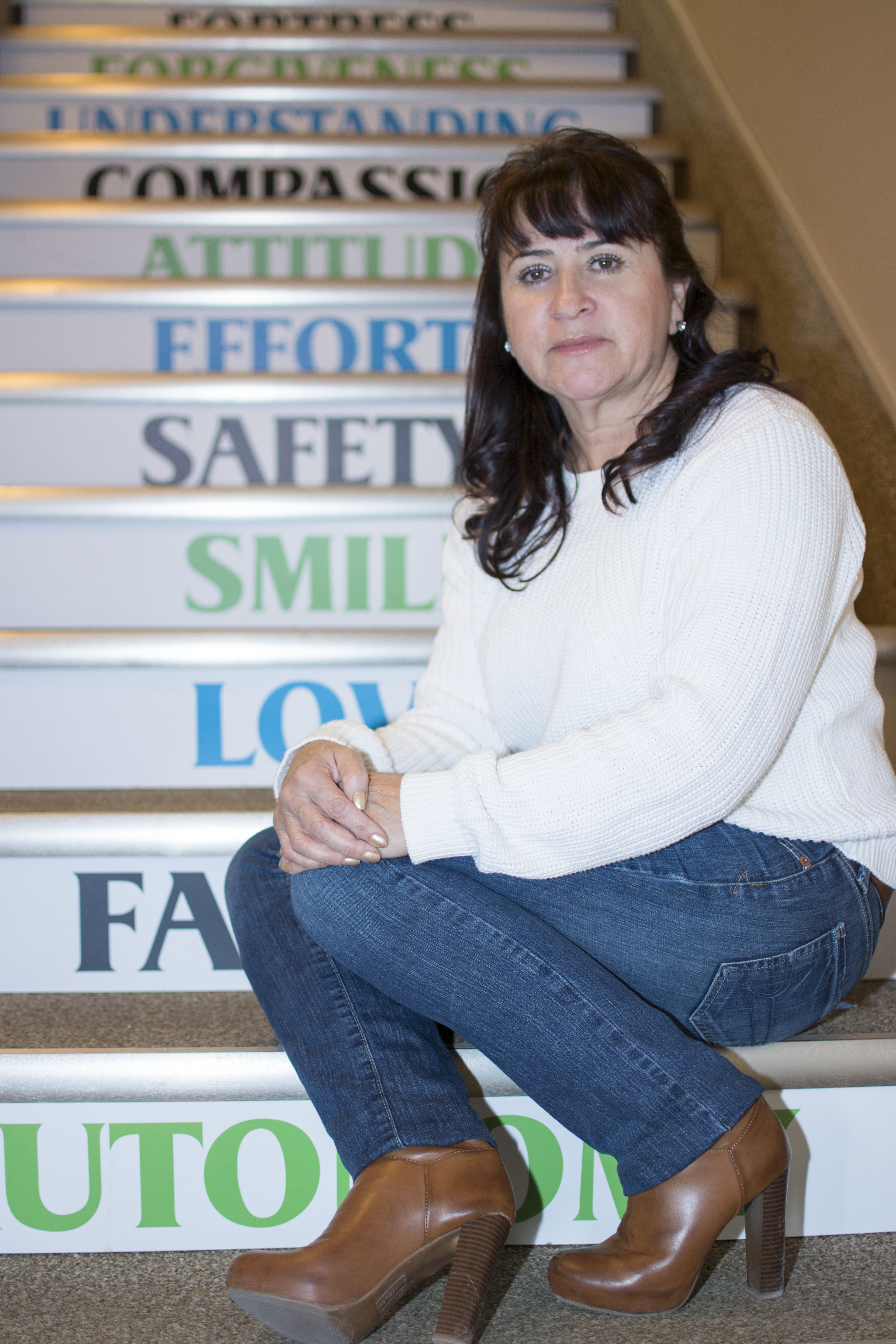Patricia Arango is on a mission to help those affected by sexual assault, and that overall desire to support people was something sparked in her as a child.
Originally from Columbia, Arango settled in Red Deer last June when she and her husband relocated from Chatham, Ontario. She took up the post of executive director of the Central Alberta Sexual Assault Support Centre (CASASC) at that time as well.
She had earned her masters degree in social and community psychology in Columbia, which led to extensive community work in her native country.
When she decided to move to Canada, she first lived in Toronto and learned that her masters only translated into a bachelor’s degree here. But she wasn’t discouraged for long. A natural resilience and commitment to hard work kicked in, and Arango kept her goal as one of serving and helping where she could.
Over a few years, she took on more and more positions that held greater community impact. Then came the move to Alberta, where she was offered the job of executive director of CASASC after working as executive director at the Chatham Kent Women’s Centre for five years.
“In Columbia, I worked with human rights issues, I worked with women and with all vulnerable communities – it was a great experience,” she explains during an interview in her CASASC office.
Upon her arrival in Canada, she didn’t speak much English and so from the start, there were challenges in settling into a new home. But she tackled the language and her communication skills flourished.
And while the recognition of her education didn’t carry over, she didn’t stay frustrated for too long. “I was crying for a day but I made a decision. I thought people can take diplomas and certificates away, but the knowledge is with me. So I could prove that I could be the same professional that I was in Columbia,” she said.
Meanwhile, the fight against sexual assault continues. Arango said in the last quarter of 2014, there were 100 additional cases of both current and historical cases reported to CASASC.
“It’s an increase like you just can’t imagine.” There are of course even more that likely go unreported. That’s still a major problem, even in an age of increased openness. There is still a common tendency to blame the victim, she said.
“We need to talk about it,” she said, indicating again those 100 cases from the latter months of last year. “The question is why.”
In addition, crisis and short-term counseling services are available from CASASC to victims of sexual assault and their families.
As the web site points out, “Individual sessions are designed to support personal coping skills and accelerate recovery in people who are experiencing the after-effects of a trauma. Regardless of the length of time since the assault, all victims can benefit from appropriate supportive intervention.”
Also, CASASC staff (SART Members) are on call 24 hours/day to provide accompaniment at the hospital for victims of recent assaults.
Staff can also facilitate and provide accompaniment to police for those individuals wishing to make a report. There is no statute of limitations on sexual assault; that is, a police report can be made regardless of the length of time since the assault occurred.
For those involved in the court process, staff is available to assist with information, preparation and accompaniment throughout the court proceedings.
A qualified therapist is accessible by appointment to provide long-term counseling. Play therapy for young children is also available. The combination of physical and emotional symptoms can result in ongoing or situational stress that is difficult to manage alone.
There is also a confidential, anonymous crisis line answered by specifically-trained volunteers, who provide information, support and referrals.
As Arango explains, building awareness about sexual assault and encouraging victims to talk about it is of utmost importance. To that end, education is also critical – CASASC has teams that visit local schools to discuss issues of sexual assault.
“It’s information about healthy relationships; it’s about sexual violence in general, but at the same time we talk about bullying, about harassment,” she said, adding that there are also discussions on what is and is not appropriate touching and what types of things should never be kept as ‘secrets’.
“It’s probably one of the reasons we are seeing the increase in numbers – they are talking more about it.”
Meanwhile, Arango is also emphasizing the importance about building respect across the community. Posters are being distributed and folks can write down various people are concepts that they respect (check out the facebook page for examples). Photos are then posted to Twitter and facebook using the hashtag #iRespect.
As for what keeps folks at CASASC so passionate about what they do, there is just so much potential fall-out for not getting help – from developing all kinds of relationship issues to horrendous emotional and psychological problems and addictions. Abused people sometimes become abusive as well.
Sometimes people may assume it’s primarily something that affects women. But many men are victims, too, she said.
“We are here for victims – human beings who have been through sexual violence. We don’t have only specific groups we work with – we work with everybody.”
To talk to someone, phone the 24-Hour Sexual Assault Crisis Line at or 1-866-956-1099. Visit www.CASASC.ca for more information.
editor@reddeerexpress.com



